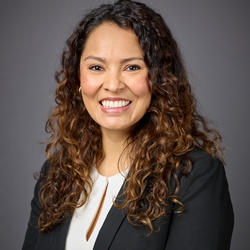Texas Creates Specialized Courts for Complex Business Disputes
Contact Gene Wolf, Mark N. Osborn, Eddie Moreno, Rachel C. Moreno, Ken Slavin and Ancel Escobar -
October 9, 2023
The Texas Legislature passed House Bill 19 earlier this year, creating specialized trial courts for complex business disputes. Although the new law became effective on September 1, 2023, it applies only to lawsuits filed on or after September 1, 2024, as the business courts will not be operational until then.
These new business courts have jurisdiction over the following cases:
These new business courts have jurisdiction over the following cases:
- Business governance disputes in which the amount in controversy exceeds $5 million1 and involve certain factors.
- Commercial disputes in which the amount in controversy exceeds $10 million and meets certain elements.
The business courts will not have jurisdiction over claims involving health care liability, legal malpractice, or monetary damages for bodily injury or death.
Cases in the business courts can be tried by a jury when required by the Texas Constitution. Any appeals will go to the newly created 15th Court of Appeals housed in Austin with statewide jurisdiction. The five justices are appointed first and subsequently elected in statewide elections.
The business courts will spread across eleven divisions, with the first five divisions (Austin, Dallas, Fort Worth, Houston, and San Antonio) becoming operational on September 1, 2024. The remaining six divisions, serving more rural areas, will only be created if the Legislature approves funding in 2025. The business court judges, appointed by the Governor and confirmed by the Senate, must meet specific qualifications2 and be reappointed every two years.
Most U.S. states operate some version of specialized business courts. A widespread rationale for creating these specialized courts is that they promote efficiency and provide judicial expertise for complex business disputes. The added benefit is ensuring Texas remains competitive in its campaign to lure businesses to Texas.
Kemp Smith’s attorneys will monitor and evaluate the development of these new business courts and are readily available to advise clients as they become operational. While we have high expectations, we are taking a wait-and-see approach.
-------------------------------------------------
1The business courts will have jurisdiction if a publicly traded company is a party to the action, regardless of the amount of controversy.
2 Mainly, a business court judge must have adequate experience, defined as a Texas licensed attorney with at least ten years of experience practicing complex civil litigation or business transactional law, serving as a judge of a Texas civil court, or any combination of the foregoing.
Cases in the business courts can be tried by a jury when required by the Texas Constitution. Any appeals will go to the newly created 15th Court of Appeals housed in Austin with statewide jurisdiction. The five justices are appointed first and subsequently elected in statewide elections.
The business courts will spread across eleven divisions, with the first five divisions (Austin, Dallas, Fort Worth, Houston, and San Antonio) becoming operational on September 1, 2024. The remaining six divisions, serving more rural areas, will only be created if the Legislature approves funding in 2025. The business court judges, appointed by the Governor and confirmed by the Senate, must meet specific qualifications2 and be reappointed every two years.
Most U.S. states operate some version of specialized business courts. A widespread rationale for creating these specialized courts is that they promote efficiency and provide judicial expertise for complex business disputes. The added benefit is ensuring Texas remains competitive in its campaign to lure businesses to Texas.
Kemp Smith’s attorneys will monitor and evaluate the development of these new business courts and are readily available to advise clients as they become operational. While we have high expectations, we are taking a wait-and-see approach.
-------------------------------------------------
1The business courts will have jurisdiction if a publicly traded company is a party to the action, regardless of the amount of controversy.
2 Mainly, a business court judge must have adequate experience, defined as a Texas licensed attorney with at least ten years of experience practicing complex civil litigation or business transactional law, serving as a judge of a Texas civil court, or any combination of the foregoing.


















































